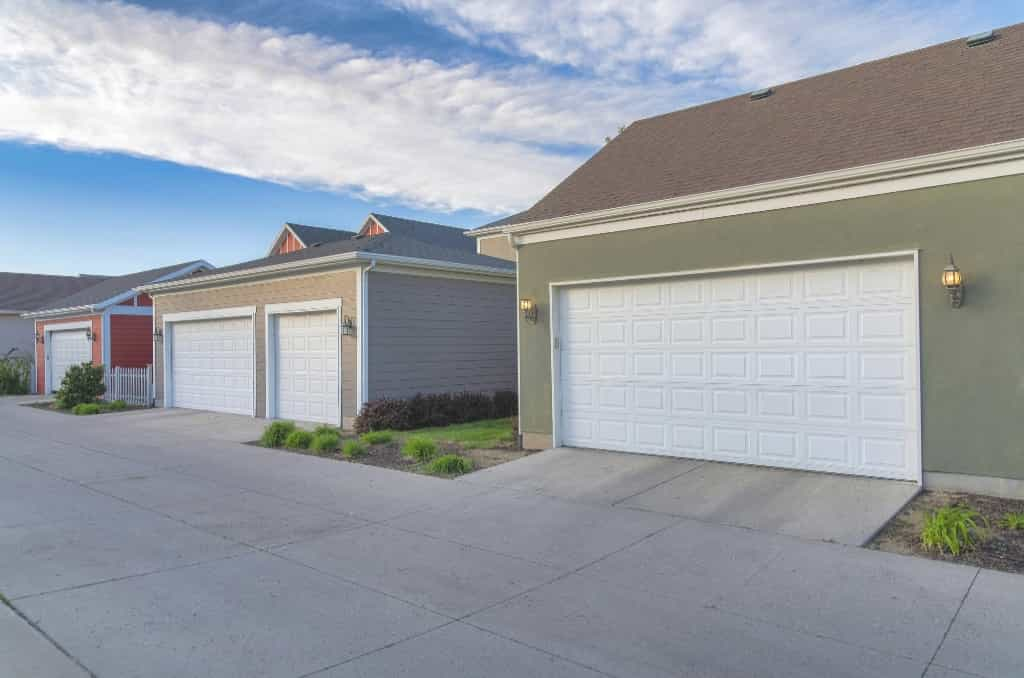
Who is responsible for gutter cleaning
May 2, 2022
Thine Shakespearean lens on Strata Management
June 22, 2022
Who is responsible for gutter cleaning
May 2, 2022
Thine Shakespearean lens on Strata Management
June 22, 2022
Shared Driveways - Understanding your rights
“The possible negative aspects of sharing a driveway can often be avoided or eliminated altogether by having a clear set of rules governing the shared property”
What to Know About Shared Driveways (maxrealestateexposure.com)
Living in a strata community means that the block of land you live on is divided into a number of lots. This could be within a high-rise building, or townhouses or villas within a community. Within this community there are areas that you own by title, including your home and possibly a parking space within the block. When the parking space is a garage attached to your home it is easy to identify as being part of your private lot, however in high-rise buildings for example, you may own as part of your title, a designated parking spot in a shared garage.
The driveway to access your parking spot or garage forms part of the common area of your strata community. It’s therefore shared with other strata community residents and their guests as well as trades and services people from time to time.
Maintaining clear access to all, for the benefit of all, can prove challenging if you don’t understand what is on your private title and readily available for your use and/or which areas of common property are accessible by you, your guests and your fellow residents to accommodate everyone’s day-to day and out of the ordinary needs for additional parking or access.
What are the other commonly shared spaces in Strata?
Other common areas within a strata community, that are shared by its residents and guests can include (but are not limited to) the following:
- Swimming pools and entertainment areas such as BBQs and playgrounds
- Gyms, tennis courts
- Gardens, pathways, garbage areas
- Foyers and lifts
- Visitor’s parking
It is the Owners Corporations’ responsibility to maintain and repair common property - which includes driveways - and to ensure that there are shared driveway laws in place that are enforced to make sure the driveway is used properly and safely, while remaining unobstructed to allow easy access for all residents and their visitors.
What are my rights?
As a resident or lot owner, you are entitled to enjoy unrestricted, safe access to your property and should be provided with any codes or remote controls that are needed to enter the complex.
All residents and their guests are able to freely access shared areas and enjoy their use within the rules and laws set by the Owners Corporation through their community by-laws. These by-laws help everyone understand their rights and obligations relating to these shared spaces to ensure that they can be enjoyed safely by everyone. Strata Acts and Regulations change from state to state, so it’s important to check the legislation regarding the use of common property in the by-laws of your strata complex.
What are my responsibilities?
Generally, the Owners Corporation Regulations will state that the owners, in a scheme, are prohibited from leaving their vehicle on the common property if it obstructs a shared driveway, pathway, entrance or exit to a lot. Similarly, visitors’ vehicles may park only in the area on the common property specified for that purpose by the Owners Corporation and there may even be time limits on use for the visitor’s parking.
When using the shared area of the driveway you will need to be aware of not only the shared driveway rules, but also take extra care knowing the driveway is used by many others including children and the elderly. Some tips to keep in mind so everyone stays safe are:
- Stick to the speed limits and do not speed in or around the complex.
- Check surroundings carefully before moving your vehicle.
- Only park in your designated parking spot or garage.
- Adhere to the rules regarding visitor’s parking.
- Do not block or restrict access to anyone else’s property or carpark area.
- Park only in designated parking areas and not on verges or kerbs.
Where outdoor space is limited, driveways and carparks can be an inviting place for children to play despite there potentially being by-laws in place to prevent this (check your specific by-laws for what applies). In strata schemes with more cars in close proximity to your living environment, the risk of accidents occurring increases and so:
- Children should always be supervised when playing outdoors or in common areas such as driveways or parking lots.
- If your by-laws do not allow activities such as recreational bicycle riding, skateboarding, scootering and ball games on driveways or common areas, ensure your own children are aware of the rules and abide by them.
Common issues and how to avoid adding to them
In strata buildings, the most common issues relating to driveways and parking issues arise when someone parks in another resident’s spot, parks on common property or uses parks allocated to visitors on a continual basis. Also when vehicles are left unattended and block entry or exit from the parking spot of another resident or entry/exit to and from the shared garage or property itself.,
It’s also often recognised that in many instances, there are more cars being used by residents than there are allocated parking spaces especially when residents have 2 or more cars per unit but only one allocated parking spot. Sometimes larger vehicles such as four-wheel drives may not even be able to fit into the provided space, so using the driveway incorrectly can actually become an ongoing problem.
Knowing your rights and responsibilities as a resident, and making sure you are doing the right thing, is the best way to benefit from living in a strata community. The driveway regulations NSW, driveway regulations Victoria and driveway regulations Queensland for example, may be similar but your strata by-laws will have the specific details relative to your residence.
To understand the by-laws for your specific complex make sure to contact your Ace Body Corporate Manager who will be able to provide you with the appropriate rules and regulations for your common property. They are also there to help you with any ongoing concerns or issues you may have with these rules being enforced at your place of residence.

